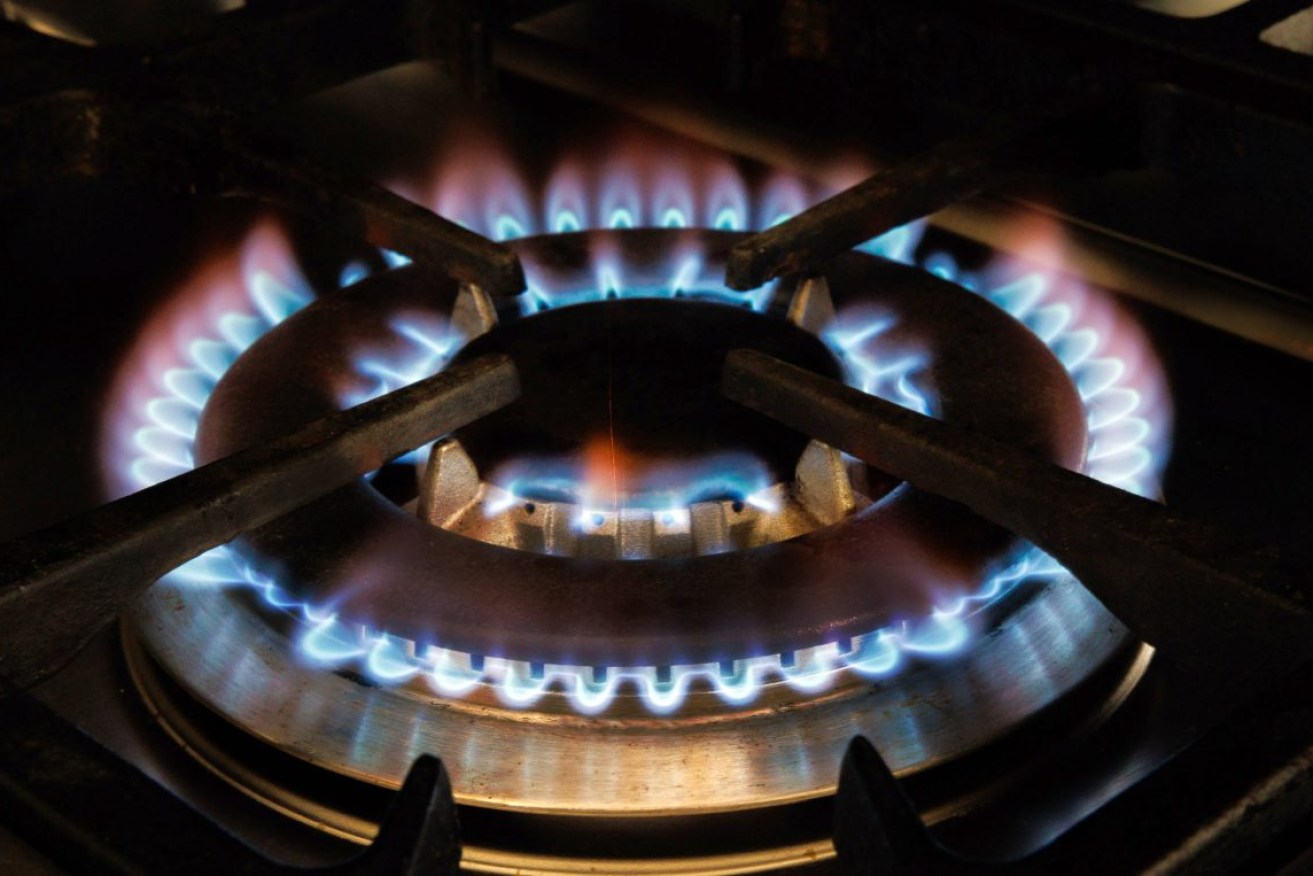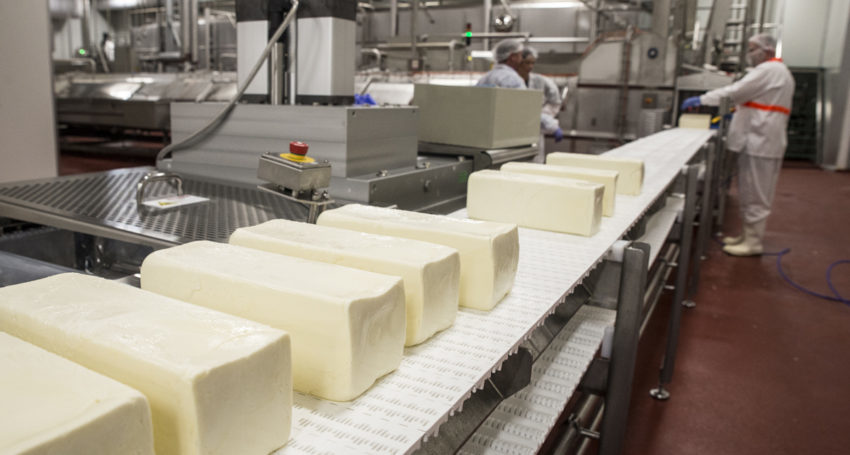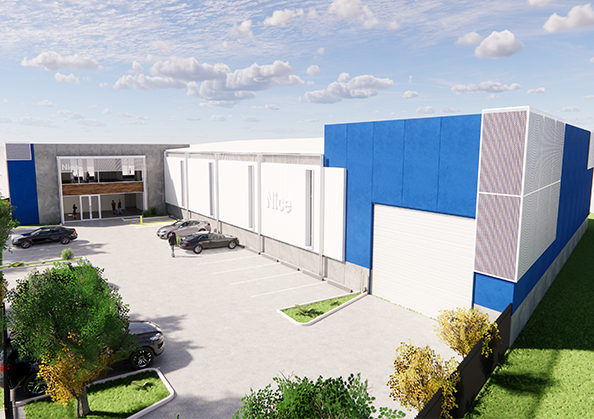Briefcase: Business snippets from around SA
In this week’s briefcase, Santos and Beach Energy commit to increasing Cooper Basin gas production to fill domestic shortages, Beston Global Foods forecasts another loss despite improved sales and Kent Town LED company VALO produces its first Australian manufactured light.


Photo: Tony Lewis/InDaily
- Rising gas prices a boost for SA companies
- Improving Beston faces another loss-making year
- Global tech firm sets up at Tonsley
- LED company shines light on local manufacturing
- Tourism agreement to help embattled industry bounce back
- Student building is a tall order
Rising gas prices a boost for SA companies
SA oil and gas companies Santos and Beach Energy will add an extra drilling rig in the Cooper Basin to boost gas supply to the domestic market.
The program of works announced this morning includes bringing a fifth drilling rig into the basin and aims to deliver an additional 15 terajoules of gas per day by the end of the year.
Santos Managing Director and Chief Executive Officer Kevin Gallagher said Santos will invest more than $430 million in the Cooper Basin this year to develop and supply critical fuels such as natural gas.
“This investment will deliver more gas to the domestic market, which is desperately needed,” he said.
“Recent domestic gas supply and price pressures have been caused by a spike in gas-fired power generation to back up renewables and to replace the 30 per cent or more of coal-fired power generation that has been offline or not operating since early May.”
South Australian-based oil and gas companies are experiencing share price surges on the back of soaring gas prices across much of Australia.
The Santos share price was up 20 cents last week to $8.40, its highest level since January 2020, just before the COVID-19 pandemic.
Fellow Adelaide-headquartered oil and gas company Beach Energy’s shares were up more than 10 per cent last week to $1.82, their highest level since January 2021.
On Wednesday, the Australian Energy Market Operator triggered the Gas Supply Guarantee Mechanism for the first time since the measure was introduced in 2017 in order to secure gas for power generators and ward off a potential shortfall in southern states.
Increased winter demand for energy, unscheduled outages at coal-fired power stations and gas shortages due to the war in Ukraine have led to soaring gas and electricity prices across much of Australia.
Anthony Albanese says the government will look at every available option to keep a lid on rising gas prices, but a failure of energy policy and global pressures are making the task harder.
He says Labor argued for a domestic gas reserve which was ignored by the former government.
“The consequential, significant hike in global prices are beyond people’s control but what was in the government’s control is actually having an energy policy,” the prime minister told the ABC on Friday.
“We had a lot of rhetoric from the former government about a gas-fired recovery year after year after year and no real policy changes were put in place.”
Federal, state and territory ministers will meet to discuss the developing energy crisis with burgeoning gas, petrol and electricity prices being described as a perfect storm.
Director of the Monash Energy Institute Professor Ariel Liebman says Australian markets are exposed to international supply constraints with retailers shipping a vast amount of gas overseas.
“We have huge amounts of coal seam gas which was allowed to be exported with none reserved for Australia which has ultimately led to a situation where Australians are paying for gas prices at global parity,” he said.
“This would all have been preventable if successive governments had paid proper attention to rigorous monitoring and regulation of all the key energy markets in Australia.”
– with AAP
Improving Beston faces another loss-making year

Beston Global Foods’ mozzarella production line at its Jervois factory. Picture: Walter Bulyga.
Cheese and meat producer Beston Global Foods has reported it expects to again make a loss this financial year despite a significant increase in sales revenue in FY22.
The company, which derives about 90 per cent of its income from dairy products manufactured at Jervois and Murray Bridge, released a market update last week with a new group sales forecast of $140 to $150 million, down from the previous forecast of $160 to $185 million.
Its revenue per litre of milk forecast for the 2021-22 year also fell from a range of $1.05 to $1.117 per litre to $0.90 to $1.10 per litre.
Beston blamed the reduced group sales and revenue per litre figures on reduced Lactoferrin sales due to a softer global market as a result of a decline in demand for infant formula in China.
But despite being lower than previously forecast, Beston says it will achieve record lactoferrin sales in the June quarter.
Group operating gross margins in the June quarter are expected to be about 15 per cent, more than double the level achieved in the previous quarter.
“These results will not be sufficient to offset the negative results achieved in the first half, and in some of the early months of the second half, with the result that BFC will report a statutory loss for FY22,” the listed company said in a statement to the ASX last week.
Beston derives the bulk of its income from mozzarella sales and reported a $21.87 million loss in 2020-21 following reliability issues at its Jervois mozzarella plant, export delays and sluggish demand from the Australian food services sector during lockdowns.
The loss follows a $12.17 million net loss in 2019-20.
A further loss of $7.8 million for the first half of the financial year was announced in February.
However, the market was not put off by the June 2 announcement with the company’s share price up 10 per cent for the week to close at $0.084, its highest level since last November.
Beston appointed new CEO Fabrizio Jorge to the business in April and has also this year appointed former Fonterra senior executive David Isherwood to the role of Chief Manufacturing Officer.
“The company is well on track to deliver cash-positive results and sustained profitability in FY23,” it said in last week’s update.
“BFC has raised the “bench strength” of its Senior Executive Team in recent months with several key appointments so as to ensure that the earnings momentum which is in train is not only continued, but can also be accelerated in future periods.
“The order book for our Mozzarella and Hard Cheese products, Whey Powder and Cream Portfolios are at record levels for FY23, which is a testament to our product quality, customer focus and market reach.”
Global tech firm sets up at Tonsley

Home automation company Nice Group moved its Australia and New Zealand operations into a $5.8 million purpose-built space at Tonsley Innovation District last month.
Founded in 1990, the Italian-headquartered company manufactures automated swing gates, garage doors, blinds and wireless alarms for residential and commercial buildings.
Nice Group Australia and New Zealand managing director Roberto Giacometti said the company had been eyeing-off a larger site to meet increased demand.
Giacometti said Tonsley provided the company with a chance to have offices, warehouses, showrooms and an assembly space in a state-of-the-art environment built by South Australian developer Leyton Property.
“The infrastructure at Melrose Park where we were, they were quite older and slow and so not anymore capable to satisfy our needs,” Giacometti said.
“We are in contact with all the branches worldwide, so we need a very good infrastructure network and speed to be able to talk with our colleagues and all-out stakeholders worldwide.
“This brand-new building, that is fit-for-purpose, has been built according to our specification and according to the needs our business has.”
He said Tonsley also provided an opportunity to collaborate with other technology companies at the site.
“There are a lot of companies that potentially in the future could interact and work together with us in order to develop brand new technologies and brand new products.”
Nice Group has 24 branches that manufacture products across the globe, including Shanghai and Quebec. Their worldwide turnover is just over $1 billion.
As well as developing automated technology for homes or businesses, Nice Group also markets anti-terrorism barriers which can protect high-security buildings from cars travelling at 50km/h.
Giacometti says Nice Group’s local operations are experiencing a growth period, with demand for products almost double what the company had budgeted for the month of June.
As a result, he is in the process of hiring more technical support and assembly staff.
– Kurtis Eichler
LED company shines light on local manufacturing
Adelaide LED lighting company VALO has produced its first Australian designed and manufactured product from its Kent Town factory.
The Zenith Gen-V one of the best-in-class LED sports lights internationally and weighs just 24kg, making it one of the lightest and smallest luminaires in its class.
The company’s high-performance lights had previously been manufactured overseas.
VALO Chief Executive Officer and Founder Aaron Hickmann said the Australian Made certified product had been several years in the making.
“It has always been a passion of mine to bring manufacturing back to South Australia,” said Hickmann, who last year took out InDaily’s 40 Under 40 Entrepreneurial Award and is sponsoring the Business Sustainability Award this year, to be revealed on Thursday.
“Manufacturing locally creates numerous jobs and saves substantial lead times and delivery costs. We have global aspirations and this launch will accelerate our plans.
“The Zenith Gen-V is our first Australian designed and manufactured product, with more to follow.”
VALO has several Zenith Gen-V projects in the pipeline, including an installation at Norwood Oval, less than 1km from VALO’s manufacturing facility.
Tourism agreement to help embattled industry bounce back
The Tourism Industry Council South Australia (TiCSA) and South Australian Government have committed to a new collaborative approach to investing, excelling, and growing the State’s visitor economy, in an agreement signed on Tuesday, May 31.
The state government and Tourism Industry Council South Australia (TiCSA) have signed an agreement to work collaboratively to address priorities and issues in the tourism industry.
The collaboration aims to lead the SA tourism industry recovery following a tough past two and a half years of closed international borders, sporadic and hesitant interstate visitors, and fluctuating local travel.
While the latest tourism industry data shows the outlook is positive, spending is still down 24 per cent relative to 2019, and the industry has lost $5.3 billion in revenue.
The agreement, signed on May 31 by the Premier of South Australia, Peter Malinauskas, Tourism Minister Zoe Bettison and TiCSA Chair Eoin Loftus, plans to grow the visitor economy and ensure a strong long-term future post-pandemic.
It includes formulating a yearly plan for activities to support tourism, conducting meetings with industry representatives via regular round table meetings to consider key issues for tourism and events, and engaging in the annual South Australian Tourism Conference, which was held last week after a two-year break.
Loftus said the signing of the agreement signalled the beginning of a strong relationship between TiCSA, the tourism industry and the new state government.
“We are looking forward to working with the state government over the next several years. Together, we are more than the sum of our parts and it is through strong collaboration that we will be best positioned to deliver the greatest outcomes for the South Australian tourism industry,” he said.
Student building is a tall order
A 36-storey student accommodation building will be officially opened today on the corner of North Terrace and Frome Road in the Adelaide CBD.
Yugo Adelaide City, a Global Student Accommodation (GSA) development, will officially open its doors to up to 725 domestic and international students from June 6.
The property is operated by GSA’s partner Yugo, the first globally-branded student housing operator.
At just over 118m high, Yugo Adelaide City is one of Adelaide’s tallest buildings, delivering panoramic views, extensive communal areas, study spaces, outdoor terraces, a gym, cinema, kitchens and lounges.
The Premier of South Australia, Peter Malinauskas and other dignitaries will join Yugo International’s Chief Operating Officer Rui Barros to open the building from 1.30pm.




